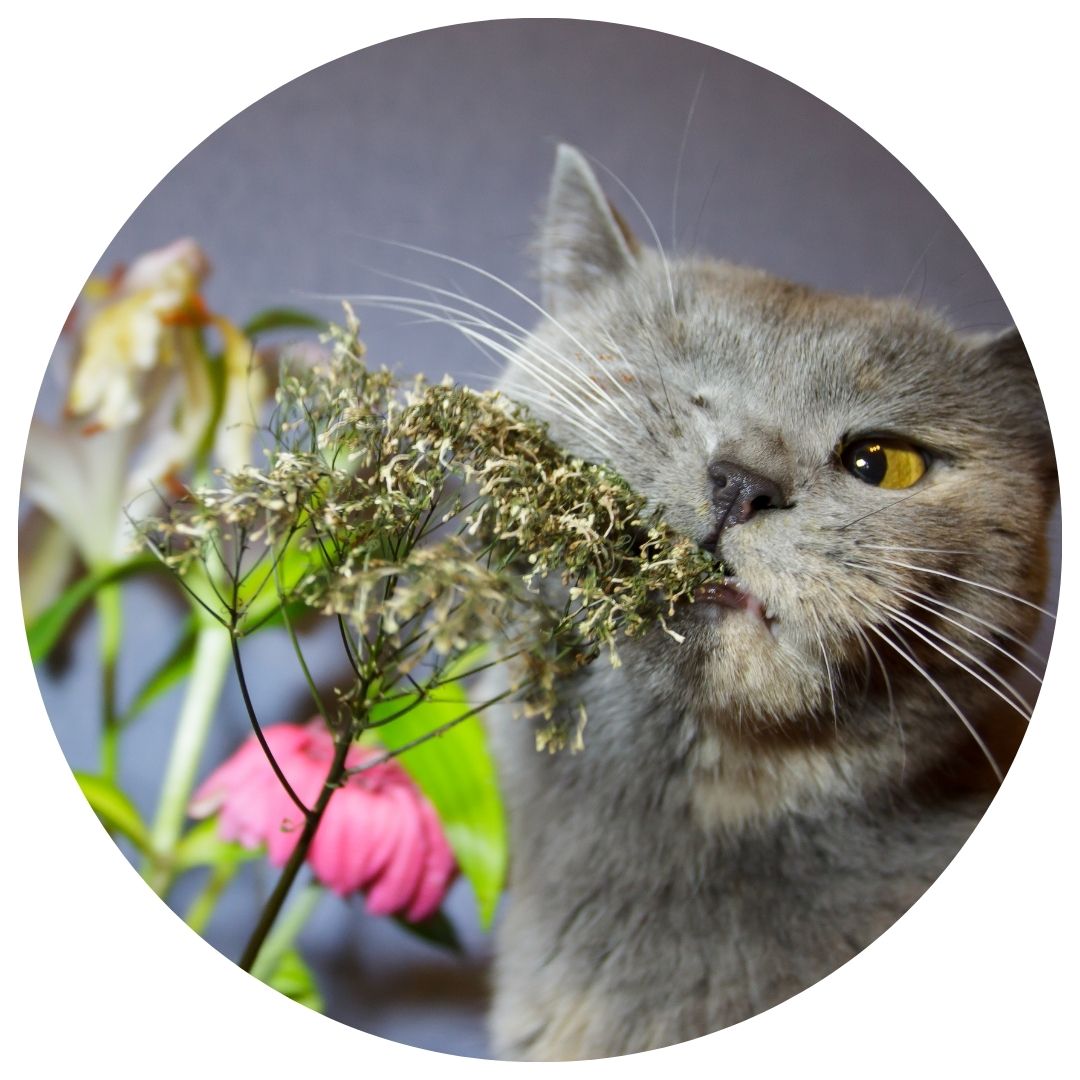Plants and Pets Don't Always Mix
Niki Kenniff
Agriculture & Horticulture Program Assistant
Spring is a favorite for many in the Midwest. Warmer, longer days, the return of birds and flowers are all part of what makes Spring special. Spring bulbs are often some of the first to pop up in our yards and grocery stores. They are bright, cheerful and often fragrant. Unfortunately, cats may also show interest in your flowers and plants that contain irritating or toxic compounds. Tulips, daffodils, hyacinths, peonies and lilies are all popular spring blooms that can cause harm to your furry friends.
 Although many cat owners share that their felines show little or no interest in household plants, it is best to be aware of which plants are toxic or harmful to cats. Toxic plants include members of the Lilium and Hemerocallis species, such as Easter lilies, stargazer lilies, tiger lilies and daylilies. Although the toxic compound is unknown, even a very small amount (piece of leaf, petal or pollen) consumed by a cat can be potentially life-threatening and warrant immediate veterinarian intervention.
Although many cat owners share that their felines show little or no interest in household plants, it is best to be aware of which plants are toxic or harmful to cats. Toxic plants include members of the Lilium and Hemerocallis species, such as Easter lilies, stargazer lilies, tiger lilies and daylilies. Although the toxic compound is unknown, even a very small amount (piece of leaf, petal or pollen) consumed by a cat can be potentially life-threatening and warrant immediate veterinarian intervention.
Another houseplant to be wary of is sago palm, Cycas revolute. Sago palms are not true palms, but part of the cycadaceae family. The entire plant is considered toxic, with the seeds containing the highest amount of the toxin, cycasin. Sago palms are toxic to animals and humans alike and immediate treatment is necessary if consumed. The ASPCA reports that up to 50% of consumption cases are fatal.
Many other plants contain irritating chemicals and caution should be used when bringing them inside homes with curious cats or dogs. Plants containing calcium oxalates are popular houseplants and can lead to symptoms including- hypersalivation, oral irritation and mild to moderate gastrointestinal issues. Common plants containing insoluble calcium oxalates include:
- Dieffenbachia sp. (Dumb cane)
- Alocasia sp. (elephant ear)
- Epiphremnum sp. (golden pothos)
- Philodendron sp. (philodendron)
- Schefflera sp. (schefflera)
- Spathiphyllum sp. (peace lily)
- Zantedeschia aethiopica (calla lily).
It’s best to avoid having any toxic plants inside your home with pets. Plants that can cause inflammation/gastrointestinal issues should be placed out of reach or in a closed room to avoid contact. To keep your cat entertained and happy, try buying dried catnip, Nepeta cataria, or catnip-containing toys as a a safe and fun way for your cat to interact with plants. Many cats enjoy chewing on grass and giving them a cat safe grass can keep them happy. There are multiple types of grass safe for cats to consume, including barley grass, oat grass and wheat grass. These cat-safe grasses are typically available to buy as seed or plants from local garden or pet stores. Make sure any plants you offer to your cats are free of pesticides or fertilizers to keep your pets safe.
